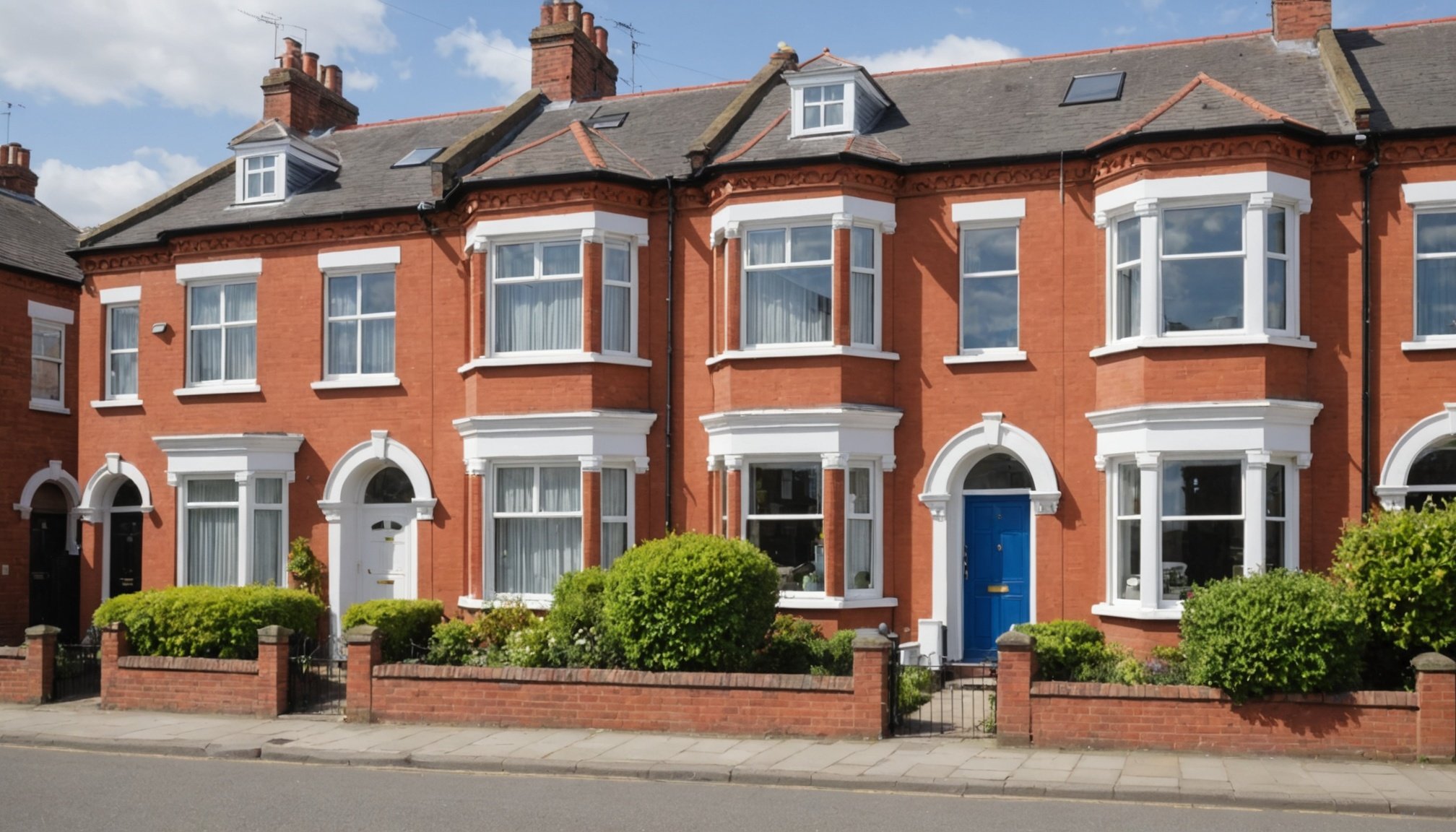The decision to buy a house is one of the most significant financial commitments you’ll make in your lifetime. However, understanding the right mortgage deal for you might seem like a daunting task. This guide will delve into the world of fixed-rate and variable mortgages, explaining their pros and cons, and how these could impact your repayments. We’ll also discuss aspects such as interest rates, SVR, tracker deals, and how the base rate impacts your mortgage.
Unraveling Fixed-Rate Mortgages
A fixed-rate mortgage means that your interest rate remains the same throughout the term of the deal. This can be for two, three, five, or even ten years. In this section, we’ll explore the advantages and limitations of opting for a fixed-rate mortgage.
Sujet a lire : Mastering Leasehold Enfranchisement in the UK: A Comprehensive Guide to Simplifying the Process
Advantages of Fixed-Rate Mortgages
The primary advantage of a fixed-rate mortgage is the predictability it offers. With a fixed interest rate, you can rest assured knowing exactly what your monthly repayments will be for the duration of your mortgage term. This is beneficial for budgeting purposes, allowing you to plan your finances with certainty.
Additionally, fixed-rate mortgages offer protection against potential interest rate hikes. If the Bank of England decides to increase its base rate, those with a fixed-rate deal will not see any change in their monthly repayments.
Dans le meme genre : Top Legal and Ethical Strategies for UK Landlords to Navigate the Eviction Process
Disadvantages of Fixed-Rate Mortgages
Despite their predictability, fixed-rate mortgages do come with some potential drawbacks. Firstly, these mortgages can often start with a higher interest rate than variable-rate deals. This means you may initially be paying more per month than you would with a variable deal.
Secondly, if the Bank of England lowers its base rate, you won’t benefit from the potential decrease in repayments. You’re essentially stuck with the agreed-upon interest rate, which can feel like a disadvantage when rates are falling.
Another factor to take into consideration is the potential for early repayment charges. If you decide to pay off your mortgage before the end of the fixed-rate term, you could be hit with a significant penalty.
Delving into Variable Mortgages
Variable mortgages, as the name suggests, have an interest rate that can fluctuate over time. These are typically tied to the Bank of England’s base rate, and can come in a few different formats – the most common being tracker and standard variable rate (SVR) mortgages. In this section, we’ll examine the benefits and downsides of opting for a variable mortgage.
Advantages of Variable Mortgages
Variable mortgages, particularly tracker deals, often start with lower interest rates than their fixed counterparts. This could mean lower initial monthly repayments, which can be attractive for many buyers.
Another potential benefit is the chance to save money when interest rates fall. If the Bank of England reduces its base rate, your monthly repayments could decrease accordingly.
Additionally, variable mortgages generally come with fewer restrictions and penalties for early repayments. If you’re considering making overpayments or paying off your mortgage early, a variable rate deal could offer more flexibility.
Disadvantages of Variable Mortgages
The main downside of variable mortgages is their unpredictability. Unlike fixed-rate deals, your monthly repayments could vary over time, making budgeting more challenging.
Furthermore, while you may benefit from falling interest rates, you’re also vulnerable to increases. If the Bank of England raises its base rate, your monthly repayments could increase accordingly, potentially putting a strain on your finances.
Lastly, while SVR deals can be attractive with their lower initial rates, they may not remain competitive over time. Lenders can increase SVR rates at their discretion, even if the base rate remains the same.
How to Choose Between Fixed and Variable Mortgages
The decision between a fixed-rate and a variable mortgage largely depends on your personal circumstances and your attitude towards risk.
If you value stability and predictability, a fixed-rate mortgage is likely to be your best bet. However, be prepared for the possibility of higher initial interest rates and penalties for early repayments.
On the other hand, if you’re comfortable with a degree of uncertainty and want to potentially benefit from falling rates, a variable mortgage could be a better fit. Just bear in mind the potential for fluctuating repayments and the possibility of rates increasing over time.
Remember, choosing a mortgage is a significant decision. It’s crucial to thoroughly research your options, consider your long-term financial plans, and if necessary, consult with a mortgage advisor to help you make the best choice.
The Impact of the Base Rate on Your Mortgage
The Bank of England’s base rate plays a crucial role in determining the cost of your mortgage. It’s the interest rate that the Bank of England charges banks and building societies to borrow money, and it influences the interest rates offered to customers.
If the base rate increases, lenders’ costs rise, and they often pass this on to their customers in the form of higher interest rates. On the flip side, if the base rate decreases, borrowing costs for lenders decrease, which can lead to lower interest rates for customers.
However, the impact of the base rate on your mortgage largely depends on the type of mortgage you have. With a fixed-rate mortgage, a change in the base rate will have no effect on your repayments. However, for variable-rate mortgages, a change in the base rate could lead to an increase or decrease in your monthly payments.
Special Considerations for First-Time Buyers
Getting onto the property ladder can be both exciting and overwhelming. As a first-time buyer, understanding the different mortgage deals on offer is crucial in making an informed decision.
Starting with a fixed-rate mortgage can be an attractive option for first-time buyers. The security of knowing exactly what your monthly repayments will be can provide peace of mind during a period that may already be fraught with uncertainty. It also allows you to budget effectively, crucial for those adjusting to the financial responsibilities of owning a property.
However, it’s worth noting that this could come with a higher initial interest rate. Additionally, if you suspect that you might want to overpay or pay off the mortgage early, the penalties associated with fixed-rate mortgages should be taken into account.
Variable-rate mortgages may offer the prospect of lower starting interest rates which could make the early years of property ownership more financially manageable. Freedom from penalties for overpayments or early settlement could also prove advantageous.
However, the unpredictability of repayments can be more of a risk for first-time buyers, who may not have the financial cushion to absorb unexpected increases. The potential for rates to rise over time also needs to be considered carefully.
In both cases, using the services of a reputable mortgage broker can be invaluable. They can provide expert advice tailored to your specific circumstances, helping you navigate through the multitude of options and find the best mortgage deal for you.
Conclusion: Pros and Cons of Fixed and Variable Rate Mortgages
Deciding between a fixed and variable rate mortgage is a complex process and depends largely on your personal financial situation and risk tolerance.
The main advantage of a fixed-rate mortgage is the certainty it provides. Your mortgage repayments will remain the same throughout your term, making it easier to budget and plan for the future. However, you could miss out on potential savings if interest rates fall, and you may face penalties if you wish to repay your mortgage early.
Variable rate mortgages, on the other hand, offer the prospect of benefitting from falling interest rates. Their flexibility in terms of overpayments and early settlement can make them a good choice for those who anticipate a change in their financial circumstances. However, they also expose you to the risk of interest rate hikes, potentially leading to higher repayments.
Ultimately, whether a fixed or variable rate mortgage is best for you will depend on your individual circumstances and the current economic climate. Keeping abreast of changes in the base rate, understanding your long-term financial plans and seeking advice from a mortgage broker can help you make an informed decision.
Remember, buying a property is a significant commitment. It’s essential to understand the pros and cons of each mortgage type, and take the time to consider your options before making a decision. This will ensure that the mortgage deal you select will be the best fit for your financial situation, both now and in the years to come.











